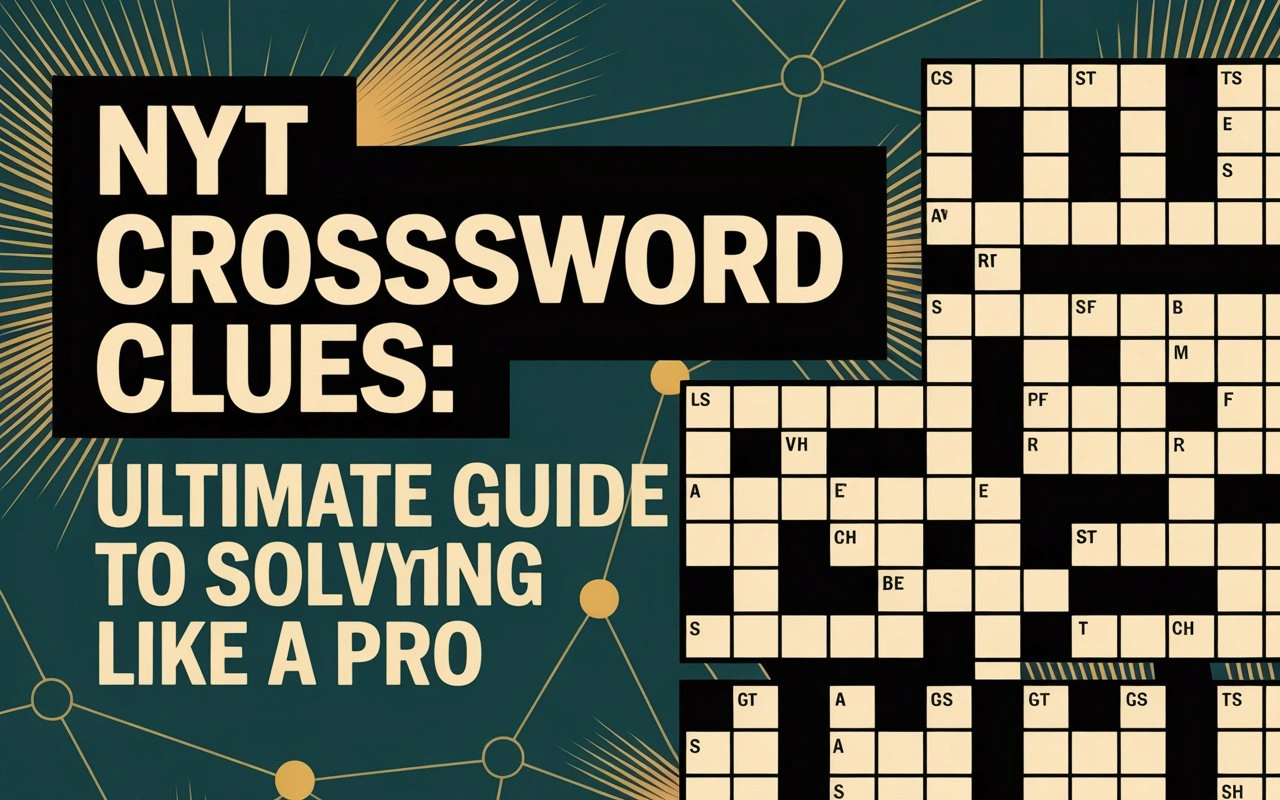The New York Times Crossword is more than just a puzzle—it’s a cultural icon that millions of people tackle daily. Known for its wit, clever wordplay, and often tricky phrasing, NYT crossword clues challenge both beginners and experts alike. But don’t worry—whether you’re brand new to crosswords or a seasoned solver, this guide will help you sharpen your skills and understand what makes these clues so addictive.
Introduction: Why the NYT Crossword Is a Cultural Icon
Since its debut in 1942, the NYT crossword has been regarded as the “gold standard” of puzzles. Its clues range from straightforward to devilishly clever, often reflecting current events, literature, pop culture, and history. What makes it unique is that the clues aren’t just about definitions—they’re about thinking differently.
What Makes NYT Crossword Clues Unique?
Clever Wordplay and Double Meanings
Many clues use puns, irony, or wordplay to throw you off track. For example, “Leaves in a bag” could mean TEA instead of foliage.
Pop Culture and Current References
From Taylor Swift lyrics to references about TikTok, clues often reflect today’s culture.
Trivia and General Knowledge
Expect clues about history, science, geography, and art.
Types of NYT Crossword Clues
Straightforward Definition Clues
Direct questions like “Capital of France” (answer: PARIS).
Cryptic Clues
Play on words—“Flower in a vase?” could mean RIVER (since rivers flow).
Fill-in-the-Blank Clues
Clues like “___ and behold” (answer: LO).
Abbreviations and Acronyms
“NATO member” or “U.S. org. with rockets” (NASA).
Puns and Homophones
Trick phrases that sound like something else.
Beginner Tips for Solving NYT Crossword Clues
Start with Monday Puzzles
The week begins easier and gets progressively harder—Monday is perfect for practice.
Look for Fill-in-the-Blank
These are usually the easiest to solve.
Use Crossword Patterns
Even partial letters help reveal longer words.
Advanced Strategies for Tackling Tough Clues
Spot the Trick in Wordplay
If an answer feels too obvious, it’s probably not. Look for hidden meanings.
Work Backwards from Crossings
Fill in surrounding answers first, then return to the tough clue.
Think Outside the Box
Some clues use irony or cultural references—don’t take every word literally.
Tools and Resources for Solving NYT Crossword Clues
-
Online Crossword Solvers (like OneAcross or Crossword Nexus)
-
Crossword Dictionaries for definitions and synonyms
-
NYT Crossword App with built-in hints and archives
Commonly Seen NYT Crossword Clues (with Examples)
-
“Man’s best friend” → DOG
-
“Capital on the Nile” → CAIRO
-
“Suffix for Japan or Taiwan” → ESE
These “frequent fliers” appear often, so remembering them helps a lot.
How the Difficulty Increases from Monday to Saturday
-
Monday–Tuesday: Easy, straightforward definitions.
-
Wednesday–Thursday: Trickier with wordplay.
-
Friday–Saturday: Hardest—vague and pun-heavy.
-
Sunday: Not the hardest, but the largest puzzle with playful themes.
The Infamous NYT Sunday Crossword
The Sunday crossword is 21×21 (larger than the daily 15×15). It’s not the hardest but definitely requires stamina, creativity, and patience.
Benefits of Solving Crossword Clues Daily
Improves Vocabulary
Regular solving expands your word knowledge.
Boosts Memory and Cognitive Skills
Studies show crossword solvers have sharper memory recall.
Fun, Relaxation, and Stress Relief
A few minutes of crossword-solving can feel like meditation.
FAQs
1. What is the hardest day for NYT crossword clues?
Saturday puzzles are usually the hardest.
2. How do I get better at solving crossword puzzles?
Practice daily, start with Monday puzzles, and learn common clue patterns.
3. Where can I find answers to NYT crossword clues?
The official NYT Crossword app and several third-party solver websites.
4. What makes NYT crossword clues different from other puzzles?
They feature clever wordplay, cultural references, and higher difficulty.
5. Can beginners solve NYT crossword clues?
Yes! Start with Mondays and use hints when needed.
6. Are crossword solver tools considered cheating?
Not really—it’s about learning. Many solvers use them to practice.
Conclusion: Mastering the Art of NYT Crossword Clues
The NYT crossword clues are famous for being clever, frustrating, and fun all at once. By practicing daily, recognizing common clue types, and applying smart strategies, you’ll soon find yourself breezing through puzzles that once felt impossible.
So grab today’s puzzle and start solving—you might surprise yourself!

